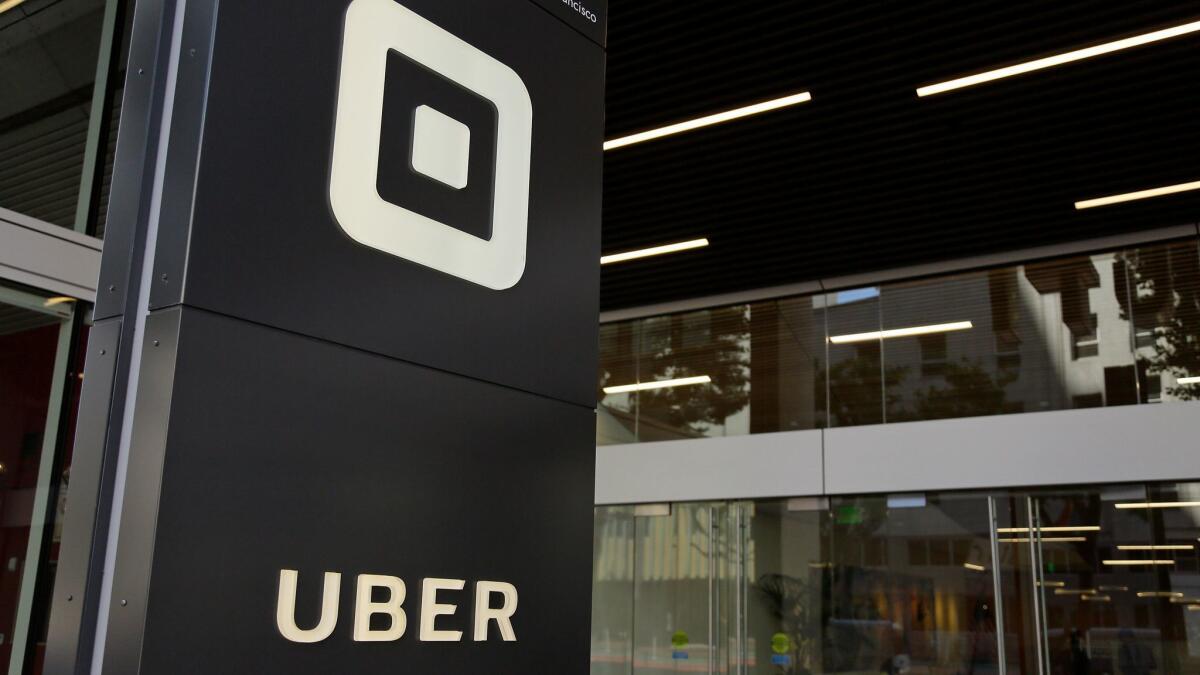Senate tax bill ditches stock option change after outcry from tech start-ups

- Share via
Reporting from Washington — A revised Senate tax bill has ditched a change in the treatment of stock options after an outcry from technology start-ups.
The original bill released last week proposed to tax stock options on the date they vest instead of when they are cashed in. Technology start-ups such as Hyperloop One, Airbnb, Uber and Vimeo complained that the change would make it harder for them to attract employees.
More than 600 start-ups, venture capitalists and technology executives signed a letter Tuesday to Senate Finance Committee Chairman Orrin Hatch (R-Utah) urging him to remove the provision.
Late Tuesday night, Hatch released a revised tax bill that did just that. The new bill also made a number of other changes, including designating new lower individual tax rates to expire at the end of 2025 and repealing the mandate in the Affordable Care Act that all Americans have health insurance.
In addition, the revised Senate bill now includes language from the Empowering Employees Through Stock Ownership Act, proposed last year by Sens. Dean Heller (R-Nev.) and Mark Warner (D-Va.) that would give employees new flexibility on paying taxes on stock options if a company offers them to 80% of its workforce.
“Start-ups rely on stock options and other stock-based incentives to offer competitive compensation in a market where large and incumbent firms can easily pay higher salaries,” Engine, an advocacy group for technology start-ups that organized the letter to Hatch, said Wednesday.
“The changes to the Senate tax plan go a long way to promoting start-ups and job creation across the country,” the group said.
The change in the tax treatment of stock options in the original Senate tax bill would have produced about $13.4 billion in additional federal tax revenue over the next decade, according to an analysis by the congressional Joint Committee on Taxation.
But the provision would have been a problem for employees of start-ups, who often hold on to their options, hopefully until the value rises with the growth of the company. Employees could have faced large tax bills before they realized the income from cashing in the stock options to pay them.
A similar stock-option tax change was in the original version of the House Republican tax bill. But the provision was removed last week when the House Ways and Means Committee approved an amendment with several changes offered by the panel’s chairman, Rep. Kevin Brady (R-Texas).
However, both bills continue to target stock options as a source of tax revenue, though not in a way that affects the tech sector in particular.
They would eliminate a loophole that allows publicly traded companies to deduct the cost of stock options and other performance-based compensation to top executives.
The tax code now limits the deduction for pay and other compensation to $1 million for each executive. But the loophole allows companies to exceed that limit for performance-based pay.
The provision, in place since the 1990s, has been blamed for helping cause the sharp rise in executive compensation at publicly traded corporations in multiple industries. Eliminating it would produce about $10 billion in additional federal tax revenue over 10 years.
Twitter: @JimPuzzanghera
UPDATES:
3:10 p.m.: This article was updated with background on a separate GOP plan to eliminate a tax loophole related to performance-based compensation.
This article was originally published at 7:15 a.m.
More to Read
Inside the business of entertainment
The Wide Shot brings you news, analysis and insights on everything from streaming wars to production — and what it all means for the future.
You may occasionally receive promotional content from the Los Angeles Times.











